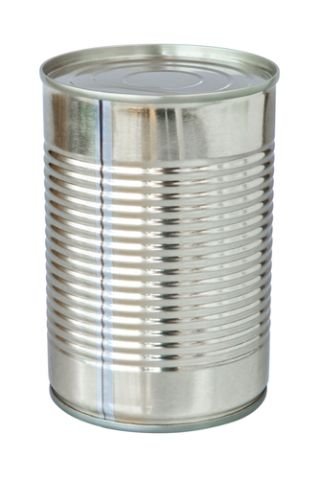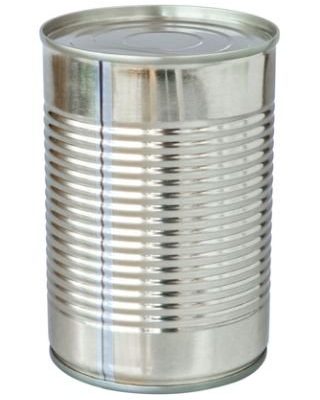
It’s a bit like finding a set of car keys in a rental car—do you get to add your name to the insurance, or is that strictly for the owner? Figuring out appliance registration isn’t just a formality. It can affect things like warranty coverage, who gets service reminders, and even who’s notified if there’s a recall.
Here’s the thing: The answer isn’t always black and white. Let me walk you through the ins and outs of registering GE laundry appliances as a tenant, what happens behind the scenes, and what you—and your landlord—should know before you click that “register” button.
Why Register GE Laundry Appliances in the First Place?
Most people don’t realize that registering an appliance (like a GE washer or dryer) is more than just adding your name to a list somewhere. It’s about officially connecting yourself—or your landlord—to the appliance’s warranty, getting faster support, and making sure you’re in the loop about potential issues or recalls.
Registering GE laundry appliances can unlock some pretty helpful perks:
- Warranty Activation: While most GE appliances come with a standard warranty from the moment of purchase, proper registration can help smooth out warranty claims and prove ownership if there’s ever a dispute.
- Service and Support: Registered appliances generally get quicker service and access to troubleshooting guidance, whether you’re dealing with strange codes or need advice on resetting your machine.
- Recall Notifications: GE keeps a record and will contact the registered owner directly if there’s ever a safety issue or recall—important for anyone relying on these machines every day.
Honestly, skipping registration doesn’t mean the appliance vanishes off GE’s map—but it does make the process of getting help a bit more complicated down the line, especially if you’re not the one who originally bought the unit.
Who’s Allowed to Register a GE Appliance?
Here’s where things get a little tricky. According to GE’s own policies—and how most appliance companies operate—the person who purchased the appliance is usually considered the “owner” for registration purposes. That often means your landlord, unless you personally paid for the washer or dryer.
But, you might be wondering: what happens if you, as the tenant, go ahead and register the GE laundry appliance anyway? It depends a lot on the details, but let’s break it down:
- Ownership Details: Registration forms usually ask for details like name, address, purchase date, and sometimes the retailer. If you’re not the buyer, you may not have 100% of this info.
- Proof of Purchase: GE may request a receipt or proof if there’s a warranty claim later. If you can’t provide that, things could get sticky.
- Landlord’s Wishes: Some landlords want to handle all appliance issues themselves (for better record-keeping or control over warranties). Others don’t mind if tenants take the lead on registration or troubleshooting calls.
In short:
If you register GE laundry appliances as a tenant, you won’t break any laws or trigger alarms—but if an actual claim comes up, GE will likely want to talk to the person with the original proof of purchase, which is probably your landlord.
How Does Registration Work for GE Laundry Appliances?
Let me explain how the process works—because it’s actually pretty simple, even if you’ve never registered an appliance before. GE makes it easy for anyone (landlord or tenant) to register their appliances online, by phone, or by mail.
Here’s what’s usually required:
- Model and Serial Number: You’ll find these on a sticker inside the appliance door or behind the control panel.
- Purchase Date and Store: If you don’t know the exact date or retailer, you can sometimes estimate or leave it blank—but for warranty claims, accuracy matters.
- Address Where Installed: GE needs to know where the appliance lives, mainly for service or recall reasons.
- Contact Info: This is where things get personal—do you use your name and email, or your landlord’s?
Generally, whoever’s contact info you use becomes the “owner of record” for notifications, troubleshooting tips, battery or part updates, and warranty details.
So, if you’re the one registering, be prepared to handle the service calls or communication from GE.
Who Gets the Warranty and Support—Tenant or Landlord?
This is where intentions matter. Picture this: The dryer stops spinning, and you call GE support because your name’s on the registration. They’ll expect you to answer questions about the purchase—and if you’re not the original owner, things could get complicated.
Here’s a quick breakdown of how warranty coverage usually shakes out with GE laundry appliances in a rental situation:
- Landlord Bought, Tenant Registered: Warranty technically belongs to the original purchaser unless GE allows transfer. If there’s a mix-up, you might need your landlord to step in with proof of purchase or approval for repairs.
- Landlord Handles Registration: They get notified for recalls, schedule service, and have control over support calls. As a tenant, you call them instead of GE if there’s a problem.
- Shared Info (with Landlord’s Approval): Sometimes, a landlord and tenant work together—using the landlord’s details for official registration but letting the tenant handle support calls as needed.
If you’re hoping to sync up support responsibilities without stepping on toes, a quick chat with your landlord is the best move. After all, it’s their appliance—and you both want it working smoothly.
Common Issues When Tenants Register GE Appliances
Let’s talk about what could go sideways if tenants register GE laundry appliances on their own.
- Service Delays: If a service tech comes out and finds your name on the registration, but you can’t produce a receipt or proof of purchase, you might hit a roadblock. GE might ask for your landlord to get involved, slowing things down.
- Warranty Confusion: If you filed the registration with your info, but the landlord is technically the owner, GE could be confused if a warranty claim pops up. This can lead to mixed signals about coverage and troubleshooting codes.
- Account Updates: If you move out, the new tenant—or landlord—may not get notifications about recalls or important service reminders. Registration details aren’t always transferred automatically.
It’s a little like programming a universal remote without checking who pays the cable bill: It might work for a while, but you could lose access (or be on the hook for troubleshooting) if ownership changes hands.
Best Practices for Tenants and Landlords
If you want your GE laundry appliances to be covered and trouble-free, collaboration is key.
- Talk First: Before you register anything, check with your landlord. They may have a system in place, or prefer to handle the codes, warranty sync, or battery replacement on their own.
- Register Together: Consider using the landlord’s info for the official registration, but add your phone or email for service updates while you’re living there. That way, you both stay in the loop.
- Clear Documentation: Save a copy of receipts, service records, and any troubleshooting steps you take. If there’s ever a dispute (or you need to reset or pair something with GE), you’ll have a paper trail.
Sometimes, landlords will add a clause about appliance management in your lease. If so, follow those instructions to avoid headaches later.
Alternatives: What If You Can’t Register?
Maybe your landlord says no, or you don’t have the info needed. Here are some workarounds:
- Rely on the Landlord: If something breaks, report it directly to the landlord and let them arrange service or troubleshooting with GE.
- Keep Appliance Details Handy: Even if you can’t register, knowing the model/serial number, battery part numbers, and reset instructions can help you explain the problem if you need repairs.
- Universal Solutions: For smaller issues—like error codes, pairing, or minor sync problems—you can often find solutions in the manual or from online GE support, no registration required.
You don’t always need to register to get help with a GE appliance. But, honestly, it’s easier if you (or your landlord) do.
Final Thoughts: What’s the Best Move for Tenants?
So, can tenants register GE laundry appliances purchased by the landlord? Technically, yes—you usually can, as long as you have the model and serial numbers. But should you? That depends on your situation, your relationship with your landlord, and how involved you want to be in appliance care.
Getting on the same page with your landlord is always the safest bet. Registration is about more than just paperwork—it’s about clear communication, smooth troubleshooting, and making sure everyone (and every load of laundry) is covered.
It’s a small detail, but it matters. Talk to your landlord before you register, keep records handy, and don’t sweat the fine print. That way, whether you’re syncing a remote, replacing a battery, or just dealing with a quirky code, you’re ready for whatever your GE laundry appliances throw your way.
